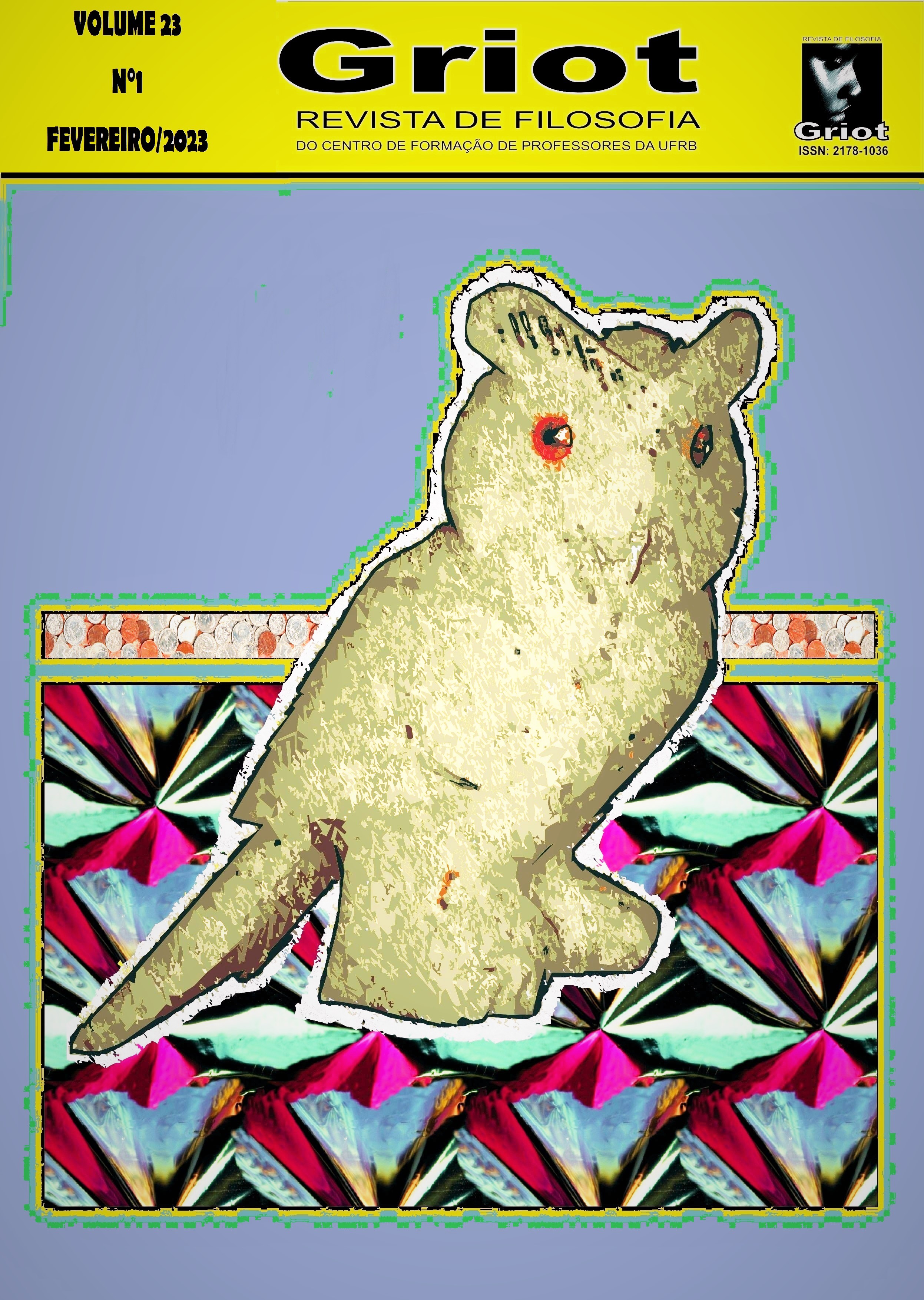From bourgeois humanism to existentialist humanism: the path of the classical intellectual to Sartre
DOI:
https://doi.org/10.31977/grirfi.v23i1.3135Keywords:
Sartre; Intellectual; Humanism.Abstract
The aim of this article is to understand the notion of classical intellectual in Sartre's thought, more specifically in the conferences Plaidoyer pour les intellectuels. We will see that the path of transformation of the technician of practical knowledge to intellectual begins with the unveiling of the contradiction of the society and of its own role, in the discovery of the falsity of the abstract and excluding bourgeois humanism. Against the ideology that have selected and educated him, the intellectual places the need to think from the concrete and the particularities, which does not imply a subjectivist relativism. By abandoning the abstract universal, the intellectual proposes, instead, a singular universalization, assuming the paradox proposed by Kierkegaard and updated by Sartre. In this sense, to approach the 1965 conferences about the intellectual to the conference about Kierkegaard, given the following year, is fundamental to better understand the role of the classical intellectual. In the theoretical questioning of the false humanism of the ruling class and in the practical questioning of its daily attitudes, he maintains the ambiguity between universal and singular, objectivity and subjectivity. Thus, we can finally understand how existentialist humanism stands.
Downloads
References
BIRCHALL, Ian. Sartre et l'extrême gauche française. Paris: La Fabrique éditions, 2011.
COOREBYTER, Vincent de. Sartre avant la phénoménologie. Bruxelas: Ousia, 2005.
CORMANN, Gregory. Sartre. Une anthropologie politique. Bruxelas: Peter Lang, 2021.
DOSSE, François. A saga dos intelectuais franceses 1944-1989. Volume 1. São Paulo: Estação Liberdade, 2021.
FERON, Alexandre. Le moment marxiste de la phénoménologie française. Cham: Springer, 2022.
SAPIRO, Gisèle. Des mots qui tuent - la responsabilité de l'intellectuel en temps de crise (1944-1945). Paris: Éditions du Seuil, 2020.
SARTRE, Jean-Paul. A náusea. Rio de Janeiro: Nova Fronteira, 2011.
SARTRE, Jean-Paul. O existencialismo é um humanismo. Petrópolis: Vozes, 2012.
SARTRE, Jean-Paul. O ser e o nada. Petrópolis: Vozes, 1999.
SARTRE, Jean-Paul. L'universel singulier. In: SARTRE. Situations IX. Paris: Gallimard, 1972a.
SARTRE, Jean-Paul. Plaidoyer pour les intellectuels. In: SARTRE. Situations XVIII. Paris: Gallimard, 1972b.
SARTRE, Jean-Paul. A imaginação. São Paulo: Difusão Europeia do Livro, 1967.
SARTRE, Jean-Paul. Questões de Método. Rio de Janeiro: DP&A, 2002.
SALZMANN, Yvan. Sartre et l'authenticité - vers une éthique de la bienveillance réciproque. Genebra: Labor et Fides, 2000.
SIRINELLI, Jean-François. Deux intellectuels dans le siècle, Sartre et Aron. Paris: Fayard, 1995.
TURKI, Mohamed. Jean-Paul Sartre - l'intellectuel et son sombre. Paris: L'Harmattan, 2021.
Downloads
Published
How to Cite
Issue
Section
License
Copyright (c) 2023 Thana Mara de Souza

This work is licensed under a Creative Commons Attribution 4.0 International License.
The authors who publish in Griot: Revista de Filosofia maintain the copyright and grant the magazine the right of first publication, with the work simultaneously licensed under the Creative Commons Attribution 4.0 International License, allowing sharing and adaptation, even for commercial purposes, with due recognition of authorship and initial publication in this journal. Read more...









































































